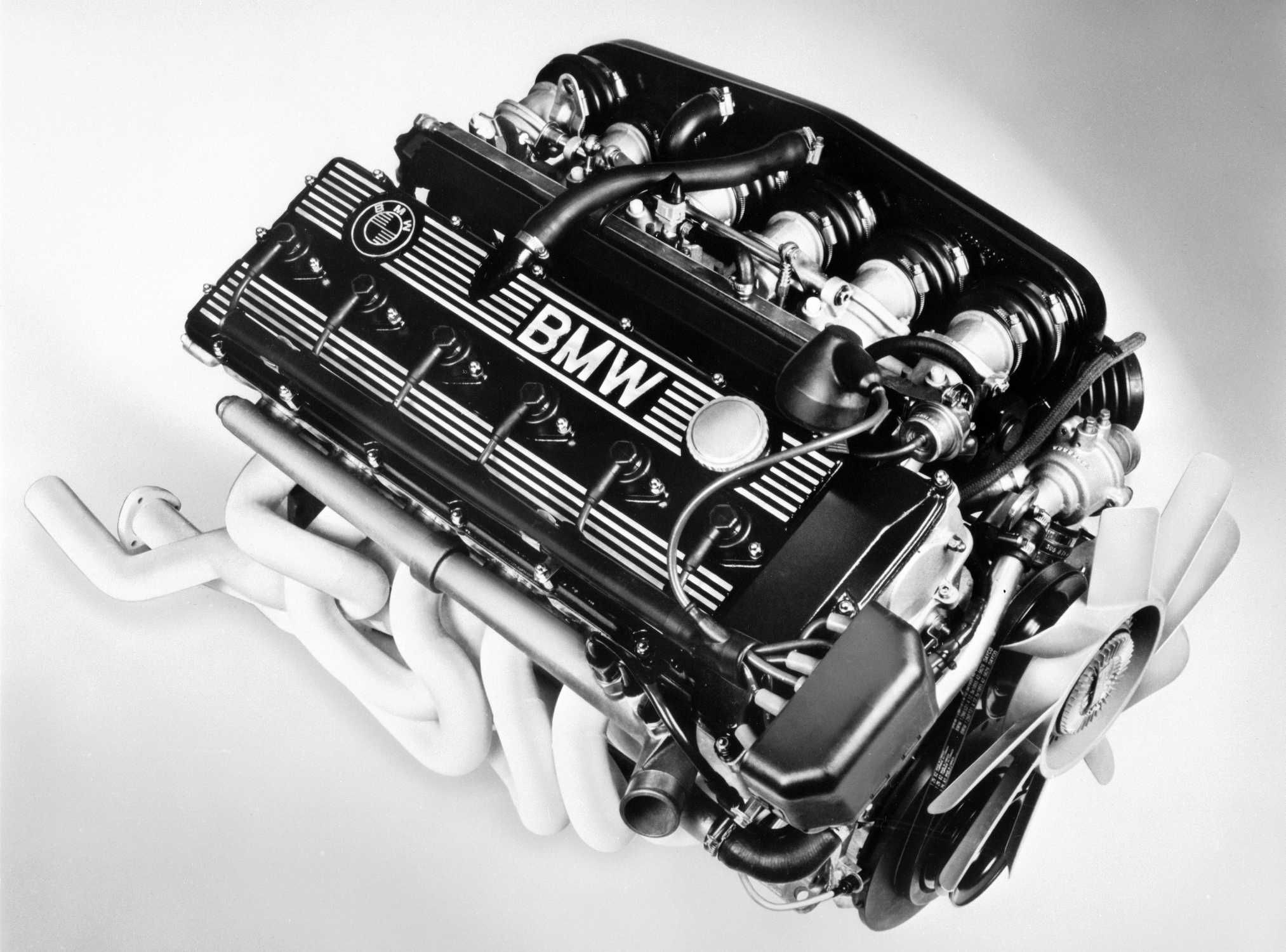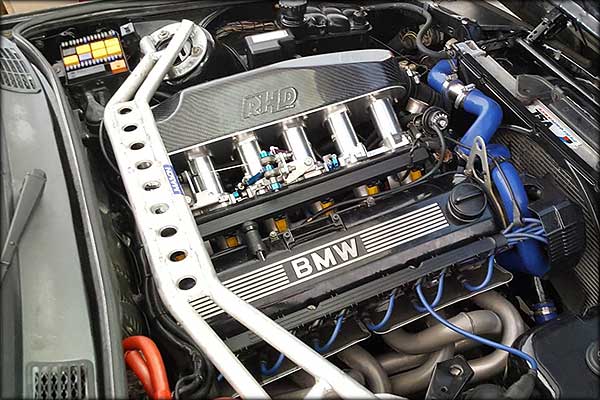Top 5 BMW Engine Technologies Revolutionizing the Automotive Sector
Introducing the Intricacies of Next-Generation Power Units: a Deep Dive Into Advanced Engine Styles and Technologies
In the realm of vehicle engineering, the relentless search of performance, effectiveness, and sustainability has actually pushed the development of power units to unmatched elevations. As we base on the precipice of a brand-new age in transport, the details of next-generation engine styles bid us to discover the innovative innovations and developments that guarantee to redefine the driving experience. From sophisticated materials that press the limits of toughness and weight reduction to innovative turbocharging and supercharging systems that raise power outcome to new levels, each component of these power units holds an essential to unlocking the future of auto design. Digging deeper right into the realms of emission control, intelligent engine administration systems, and the horizon of power system growth, we locate ourselves on the cusp of a makeover that assures to improve the landscape of movement as we understand it.
Advancement of Engine Products

The shift in the direction of advanced engine products has actually also made it possible for designers to create engines with greater power outcomes while keeping fuel performance standards. As an example, using lightweight materials decreases the overall weight of the engine, resulting in enhanced fuel economic situation and lower discharges. Additionally, advancements in materials modern technology have actually permitted far better thermal administration within engines, leading to boosted integrity and long life.
Turbocharging and Supercharging Technologies
How do Turbocharging and Supercharging Technologies transform engine efficiency and performance in modern lorries? Turbocharging and turbo charging are technologies that dramatically boost engine performance by boosting the amount of air intake right into the burning chamber. Turbocharging accomplishes this by utilizing a generator driven by exhaust gases to pressurize the intake air, while turbo charging makes use of a belt- or chain-driven compressor to attain the same result.
These innovations allow smaller sized, more fuel-efficient engines to create power equivalent to bigger ones, recognized as downsizing. Forcibly more air right into the cylinders, turbocharging and supercharging boost burning effectiveness, leading to increased horse power and torque output without a considerable increase in engine size. This results in much better acceleration, towing ability, and overall driving efficiency.
Moreover, turbocharging and turbo charging add to enhanced fuel efficiency by enabling the usage of smaller sized engines that consume less fuel under normal driving problems - bmw engine. This combination of enhanced performance and performance has made turbocharging and turbo charging indispensable parts of numerous modern-day engine styles
Emission Control and Environmental Effect
With boosting worldwide issues concerning air high quality and ecological sustainability, the execution of exhaust control modern technologies in vehicles plays a crucial function in minimizing harmful toxins launched into the environment. Modern lorries are geared up with advanced exhaust control systems that assist decrease the ecological influence of vehicle procedures. Catalytic converters, as an example, are designed to transform harmful gases such as carbon monoxide gas, nitrogen oxides, and hydrocarbons right into much less damaging materials like carbon dioxide and water vapor.
Additionally, improvements in engine technology, such as the combination of exhaust gas recirculation systems and careful catalytic reduction, have actually significantly added to lowering discharges. These innovations operate in tandem to enhance combustion efficiency and lessen the launch of dangerous contaminants into the air. Additionally, the growth of hybrid and electrical cars represents a crucial action in the direction of lowering the total environmental footprint of the transport market.
Intelligent Engine Administration Equipment

Additionally, these systems allow cars to fulfill rigid emissions criteria without compromising performance, offering a more eco-friendly driving experience. The combination of artificial intelligence and artificial intelligence capacities in engine administration systems continues to push the limits of what is feasible, resulting in more renovations in effectiveness, integrity, and total lorry performance. bmw engine. As automobile technology advancements, intelligent engine monitoring systems will play an essential role fit the future of transportation towards a much more sustainable and effective instructions
Future Trends in Power Device Development
As intelligent engine administration systems lead the way for enhanced control and optimization in contemporary automobiles, future fads in power device advancement are poised to redefine the landscape of automotive propulsion technologies. Among the crucial patterns driving technology in power system growth is the change towards electrification. With an increasing focus on sustainability and reducing carbon discharges, hybrid and electrical powertrains are ending up being much more prevalent in the automobile market. These alternate source of power offer enhanced effectiveness and efficiency while aligning with rigid environmental regulations.
An additional substantial fad is the integration of sophisticated materials and producing strategies. Light-weight products such as carbon fiber and aluminum are being used to decrease overall car weight, boosting gas effectiveness and efficiency. Furthermore, innovations in 3D printing and additive manufacturing are enabling the manufacturing of complex basics engine elements with higher precision and resilience.
Additionally, expert system and maker learning are playing a critical role in enhancing power system efficiency. These modern technologies enable real-time tracking and adaptive control, causing much more reliable and trusted power shipment. In general, future fads in power system advancement are geared in the direction of performance, sustainability, and efficiency, driving the automotive industry towards a new age of propulsion modern technologies.

Final Thought
To conclude, the advancements in engine products, turbocharging, discharge control, and intelligent administration systems have actually led the way for next-generation power devices. These innovations have not just improved efficiency and efficiency yet likewise decreased ecological effect. As modern technology remains to evolve, future fads in power unit advancement are most likely to concentrate on additional boosting sustainability and optimizing power output. The detailed designs and technologies in modern-day engines showcase the recurring evolution of auto innovation.
Discovering the progressive developments in engine products has actually been crucial in enhancing the efficiency and efficiency of contemporary engines. Over the years, the advancement of engine materials has actually played a crucial function in pushing the borders of what engines can achieve.The change in the direction of advanced engine products has actually also enabled designers to develop engines with greater power results while keeping fuel efficiency criteria.The implementation of smart engine management systems in modern-day lorries important link has actually transformed the method engines are regulated and optimized for efficiency and performance. By collecting data in real-time and analyzing it with innovative formulas, smart engine administration systems can adjust to driving styles, environmental aspects, and engine health to make the most of power output while reducing fuel intake and discharges.